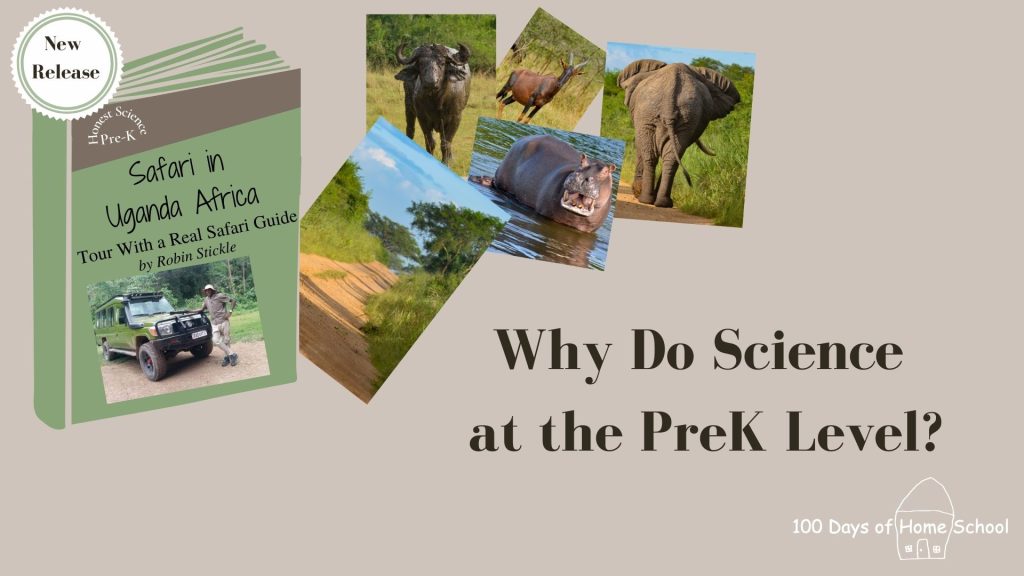Why Do Science at the PreK Level?

Babies and Toddlers are Scientists, Why Stop Them?
Science at the PreK level hinges on babies’ and toddlers’ natural interests. They like to observe their surroundings and experiment with them. A parent that allows and encourages this is already teaching science. This goes a step further when the parent provides messy play opportunities. One example is water play. It illustrates gravity, how things float, and what absorbs water. Science is about the opportunity to observe one’s surroundings, predict how things work, and experiment with them to prove our assumptions.
A child at the PreK level has probably tested many scientific principles. If the child drops an object and listens, the child learns that a hard thing makes a different sound than a soft one. The child learns that a cat defends itself when poked or chased. The most important science at the PreK level of all to the child is that he or she learns how adults take care of and provide for children.
Key PreK Science Elements:
PreK Science Books
Parents can help their children expand their science knowledge by providing the right animal and plant interactions, as well as the right toys and books. The book Safari in Uganda Africa is just one example. It gives the child an opportunity to visit a faraway country through a book tour by a real Safari guide.
This book teaches how the animals there deal with the hot African sun, how they take care of their young, and how their local area suits them. They also learn what animals belong in the wild in Africa and the elements of that biome. The format of a tour with high-quality pictures and a fun guide keeps their attention. At the end of the book, the safari guide invites them to go on a safari in Uganda. He also offers his contact information. Children get much more interested in a topic if they feel connected to people involved in the science field.
Open Ended PreK Toys are Scientific
Science-related books are great for rainy days and moments when a child is feeling less active, but PreK children need action most of the day. Open-ended toys help with this. Examples of these are play dough, blocks, water play, sticks, sand, kitchen sets, and dolls. They use these to create a setting and act out a scenario. An example is a child making a ‘mountain’ of sand with paths circling down. Then he pours water down the paths and explains that his volcano is erupting. Often these are topics the adults in their life have talked about or done. Parents need to talk to their children to help this happen. These are foundational building blocks that help children handle more complicated science later in school.
Nature and Animal Science
A couple of other topics covered in science at the PreK level are nature and animals. Creating opportunities for interaction with them is difficult in some homes. Starting a seed in a cup and caring for it is reasonable, but not everybody can grow a full garden or orchard with their child involved. Not everybody can keep a pet, but they could go to a park or zoo and observe animals. Pay close attention to each child’s interest areas. Some love messy science projects, others prefer watching them done by someone else or online. If a child is forced to do science that is not of their character, he will learn to hate the subject.
Government Standards for PreK Science:
The standards for PreK science in Ohio page 8 cover the following key topics: Inquiry, cause/effect, and exploration of the natural world, energy, and living things. Other states may have similar standards. Pages 40 – 47 cover examples of inquiry. The pages following that cover examples of the other topics listed at the beginning of this paragraph. Government standards like these make teaching seem impossible, but it’s not that hard. The parent that shows their child a keen interest in nature and scientific concepts will find that the child will pick up on it quickly. Notice that the key topics listed at the beginning of this paragraph are covered in a hands-on way in the subtitle above Key PreK Science Elements.
Science and Higher-level Thinking:
Science is associated with the brain’s ability to think on a higher level. The five senses collect information. The brain processes it, makes assumptions and decides to test these. After testing, the brain repeats the process and makes adjustments. The process is repeated until desired unless interrupted. Then the brain forms conclusions. Yet science is often set aside as an unimportant academic subject. Perhaps that is because it’s messy or maybe it takes more brain power than teachers want to invest. Therefore Science at the PreK level gets left by the wayside, but should it?